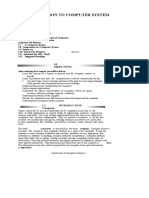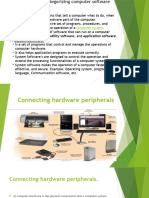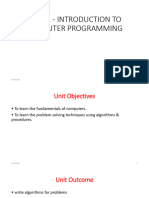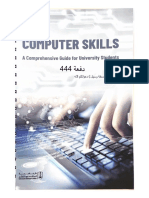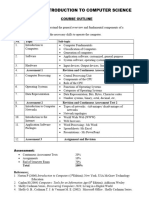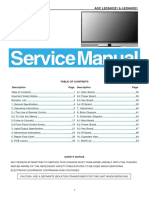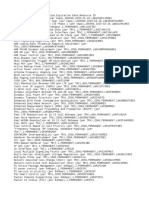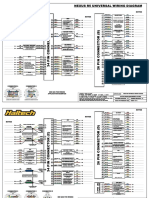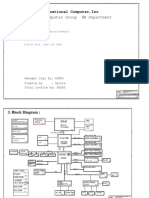Lecture 1: Introduction to computer systems
Intro to Systems
https://www.youtube.com/watch?
v=MNY1DGS0lbg&list=PLCSWq7K6vH58xPXK212ET04vOThyLC-8B
After studying this chapter you will be able to:
Learn the concept of a system in general and the computer system in
specific.
Learn and understand how the computers have evolved dramatically within
a
very short span, from very huge machines of the past, to very compact
designs
of the present with tremendous advances in technology.
Understand the general classifications of computers.
Study computer applications.
Understand the typical characteristics of computers which are speed,
accuracy, efficiency, storage capacity, versatility.
Understand limitations of the computer.
Discuss the similarities and differences between the human and the
computer.
Understand the Component of the computer.
1.1 INTRODUCTION- Computer
Today, almost all of us in the world make use of computers in one way or the
other. It finds applications in various fields of engineering, medicine,
commercial,
research and others. Not only in these sophisticated areas, but also in our
daily lives,
computers have become indispensable. They are present everywhere, in all
the dev
ices that we use daily like cars, games, washing machines, microwaves etc.
and in day
to day computations like banking, reservations, electronic mails, internet and
many
more.
The word computer is derived from the word compute. Compute means to
calculate. The computer was originally defined as a super fast calculator. It
had the
capacity to solve complex arithmetic and scientific problems at very high
speed. But
nowadays in addition to handling complex arithmetic computations,
computers perform
1
�many other tasks like accepting, sorting, selecting, moving, comparing
various types of
information. They also perform arithmetic and logical operations on
alphabetic, numeric and other types of information. This information
provided by the user to the computer is data.
The information in one form which is presented to the computer is the input
information
or input data.
Computer Fundamentals/2
Information in another form is presented by the computer after performing a
process on it.
This information is the output information or output data.
The set of instructions given to the computer to perform various operations
is
called as the computer program. The process of converting the input data
into the
required output form with the help of the computer program is called as
data
processing. The computers are therefore also referred to as data
processors
Therefore a computer can now be defined as a fast and accurate data
processing system that accepts data, performs various operations on the
data, has the
capability to store the data and produce the results on the basis of detailed
step by step
instructions given to it..
The terms hardware and software are almost always used in connection
with the
computer.
• The Hardware:
The hardware is the machinery itself. It is made up of the physical
parts or devices of the computer system like the electronic Integrated
Circuits (ICs),
magnetic storage media and other mechanical devices like input devices,
output
2
�devices etc. All these various hardware are linked together to form an
effective functional unit. The various types of hardware used in the
computers, has evolved from vacuum tubes of the first generation to Ultra
Large Scale Integrated Circuits of the present generation.
• The Software:
The computer hardware itself is not capable of doing anything on its
own. It has to be given explicit instructions to perform the specific task. The
computer
program is the one which controls the processing activities of the computer.
The
computer thus functions according to the instructions written in the program.
Software
mainly consists of these computer programs, procedures and other
documentation used in the operation of a computer system. Software is a
collection of programs which utilize and enhance the capability of the
hardware
.
TEAM WORK:
1. 2 EVOLUTION OF COMPUTERS (page 3, check your progress page 2)
2. FIRST GENERATION
3. SECOND GENERATION
4. THIRD GENERATION (page 5)
5. FOURTH GENERAL (page 6)
6. FIFTH GENERATION (page 7 – check your progress)
3
�TEAM WORK:
1. 2 EVOLUTION OF COMPUTERS (page 3, check your progress
page 2)
2. FIRST GENERATION
3. SECOND GENERATION
4
�4. THIRD GENERATION (page 5)
5. FOURTH GENERAL (page 6)
6. FIFTH GENERATION (page 7 – check your progress)
